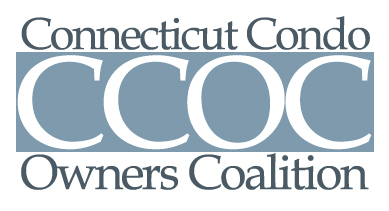Refusing To Pay Condo Fee Is Like Playing Russian Roulette With A Fully Loaded Revolver
Standing on principle is an admirable trait. But it’s a losing strategy when you use it as the reason to withhold payment of your condo maintenance fee or fine.
Let’s just say it’s like playing Russian Roulette with a fully loaded revolver.
Just ask Tom Savoca of Madison, Mary of Eastern Connecticut, and Josie Harrison of Naugatuck of how it worked out for them when they stood their ground on their principle and refused to pay either their maintenance fees and/or fines because they felt they had been wronged by their boards of directors.
Tom and Mary were taken to court and would have lost thousands of dollars. They were going to be foreclosed on. Josie was going to be sued.
In each case – as well as a half dozen others -that I and Brian Harte, president of the Connecticut Condo Owners Coalition, and Gail Egan, chairwoman of the CCOC investigations committee, told the condo owners to immediately pay their fines and maintenance fees and try to settle their court cases. The CCOC provides information to condo owners and attempts to protect them from unscrupulous board members or property managers.
While none of the three of us are lawyers, the issue in this case is clear. Condo associations, just like mortgage companies, must be paid when the money is due, as is the case in most states. We are unaware of anyone who was able to defeat a condo association’s legitimate court claim on this issue.
A condo owner has other avenues to protest legally without jeopardizing their homes. For instance they can file a small claims action or publicize the issue, or even try to replace the board or property manager.
All of the condo owners that contacted us said they were stunned that their board of directors filed legal actions against them for failing to pay their fees or to pay fines for violating condo rules.
They all said that they would win in court by proving that the condo board’s assessments were improper or illegal. Obviously they did not read their condo bylaws very thoroughly. Nor did they check state condo laws.
Tom, who lives at the Richborough Condo Complex was convinced that the assessment the condo association charged for local taxes was twice the amount it should be. As the former treasurer of the association, he believed that the new assment was wrong, so he began a fight with the board by refusing to pay their common fee.
Page 2 The Fight Starts
Pages: 1 2






WOW, sad part it is so true we as Condo Owners must read those trusty BYLAWS they are not only to protect us from the so called board/property management that we hire, it is also used to protect them as well when we do not adhere to certain rules we agreed upon once we took our keys upon purchase. My problem is I pay my common charges on time every month and still I have an Uneducated Board that is made up of two people (Unfortunately it is legal within our BYlaws becuase we are a small complex, the treasurer can hold two seats both treasurer and secretary). Here’s the kick the Treasurer runs the show and is blantant with it , I have to laugh to keep from crying. What is even worst because of the fear of having to pay for an attorney or stand up and say something only two of us speak out about what’s going on but now everyone seems to be getting fed up but refuse to do anything. So now, we have one Foreclosure Unit that can not be sold.(Waiting on Bank of America to see if they will put some fire up under our board)becuase our Board is not Certified by DCP or registered with the State, which the treasurer lied about sending a check to the state. (we at least get bank statements to see how she maneuvers her treachery)We have another owner who has a fore sale sign out for almost year and can not sell becuase, why, WE ARE NOT FHA APPROVED. I have even been looking into buying a home and when the realtor came to pick me up she knew about how corrupt my Board is. It is SO SAD, this is where I live and thought was a great investment. The President is only President by name only and The Treasurer runs the show and careful about not letting anyone run into her out in the parking lot, God forbid. Sorry to be venting, I am so frustrated as all of you of the lack of responsibility & respect these people who you think (Although I did not vote thse people in, I tried to reason with the majority becuase I saw the world coming to an end)are going to protect your investment becuase they have a stake in it, just as you do, but they don’t have a clue except the GREED.
Can an amendment be made in ct to stop rentals?
Susan,
Realistically no. In the housing industry in general, not just condo’s and HOA’s, FHA and HUD, as well as Social Service rentals would be at odds with that immediately. Not to mention the several owners of any type of housing property that make a business of it as investment/rental property. That vacation in Myrtle Beach where a friend rents out a condo for a week or two at a time would no longer be possible.
What an association’s ownership must be cognizant of is the ratio of residing owners vs. renters and how that percentage relates to the Declaration and Bylaws of a particular community. This is where it is crucial for unit owners – across the board – to be well versed in their governing documents, because for an association that is starting to get into financial trouble – and it is not FHA certified – then the potential buyer pool becomes very small. And conversely, when an owner tries to sell, it will become that much harder. Concisely, renters will often times be the difference between a fee-generating unit, and a foreclosure that the rest of the association will be forced to pick up the financial pieces on.
Thank you Mr. Gombassy for your article in the New Haven Register of Sunday, July 29, 2012 which I found to be a fair portrayal of what happens frequently in condominium life.
Many people purchase condominiums feeling their responsibility ends at the closing table. Connecticut State law requires all purchasers of condos be given the condo bylaws/rules and regulations and after reading them and disagreeing with any portion of them; have seven days to request their deposit back and cancel the contract–and they don’t have to give an explanation. This does not happen as often as it should, consequently leading to misunderstanding on the part of the new owner who often becomes hostile when a rule is brought to their attention.
Condominium boards should do everything in their power to make it clear to prospective owners that they will have responsibilities and list them in large letters and in simple terms. In other words, there should be a FAQ sheet printed on bright paper and attached to their copy of the bylaws telling them that they would have to pay for a plumber or replace their own windows or doors, that pets are prohibited or whatever that particular association has included as “owner responsibility.” The board also knows what the frequent complaints from residents might be and these issues should somehow be incorporated into this “bylaw crib sheet”. This may take a bit of time for the board of directors to produce and it may turn some purchasers away; however, in the long run it may prevent many disputes from those owners who just don’t take the time to read before they buy or ask if they don’t understand. Current unit owners should also be reminded from time to time of their responsibilities either through timely newsletters or sent copies of the FAQ sheets given to prosopective buyers as reminders.
We are a small condo assoc., and just put up 2 handicap parking signs. One owner puts a handicap sign on his mirror and parks in one of the spots everyday, so his friend can park in his spot. Are these 2 spaces for owners or are they for guests?
I think that depends on how the by-laws and rules read.